Ginseng is a complete NO-NO for pregnant women, confirms a top dietician.

Although ginseng is a brilliant herb otherwise, when it comes to pregnant women it has some major side-effects. According to Rizwana Sayed, dietitian at Apollo Clinic, Pune, ginseng is a type of herb mainly found in Asia and America. It is generally consumed for these following reasons: But when it comes to pregnant women, Sayed has her reservations. She says, “Ginseng generates heat in the body which is neither good for the expecting mother, nor the fetus.” But why are we blaming this otherwise good herb? “Without a doubt, ginseng is otherwise a great herb. However, besides having such great health benefits, ginseng is generally not recommended during pregnancy at least in the first trimester,” she explains. Sayed says, “Ginseng Rb 1 is an active chemical in ginseng, which is associated with development of defected embryos. It also has anticoagulant properties, which makes it potentially unsafe during childbirth.” If you are pregnant you should stay away from this little herb. Image courtesy: Shutterstock She also mentions that women who consume ginseng knowingly or unknowingly have reported more headaches, diarrhea, vaginal bleeding, and hormonal imbalances. That’s why it is better for pregnant women to avoid this herb or consult a doctor before consuming it. “Due to the overdose of ginseng, it has been seen that babies are born with a shorter length and less muscle cells. More exposure to ginseng Rb 1 means more birth defects. Do you know there are a lot of herbal teas like kahwa that also have ginseng in it, which is also not safe for the expecting mothers? Although, there is no proven data but there are ongoing studies,” says Dr. Gandhali Deorukkhar Pillai, gynecologist, Wockhardt Hospital, Mumbai. And it also interferes with sleep patterns of pregnant women Everyone knows that expecting mothers are advised to take proper rest for better development of the fetus. But ginseng won’t let that happen. “There are expecting mothers who have reported major mood swings and sleep disturbance, after consuming ginseng in any form. Due to this, they feel major fatigue all the time”, says Dr Pillai. Not just that, women have also reported lower blood sugar levels, due to which they feel dizzy and nauseous all the time. “Do you know this can also increase the risk of diabetes?” she warns. Dr Pillai also mentions that some women experience a dry mouth. That’s because ginseng releases certain enzymes in your body that impact the functioning of the salivary glands. The bottom line is that ginseng isn’t a safe bet, especially when it comes to pregnancy. So, it’s better if you steer clear of this herb if you are pregnant and breastfeeding. Better safe than sorry! Source: https://winningbrain.com.ng/ginseng-is-a-complete-no-no-for-pregnant-women-confirms-a-top-dietician-heres-why/
Multiple well-being advantages of consuming vitamins similar to Raisins

Healthy snacks like raisins aka kishmish ought to be consumed as it’s a nutritious super-food. Almonds and walnuts are among the many yummy snacks provided to us by mom nature which we are able to devour guilt-free. Raisins are dried grapes that are stuffed with a number of vitamins similar to nutritional vitamins, minerals, antioxidants, phytonutrients, polyphenols, and plenty of different dietary fibers. For all those that are well-being acutely aware, raisins are greatest appropriate for his or her food regimen. Following are their well-being advantages: “Raisins provide relief from constipation as well as other gastrointestinal problems like abdominal pain, irritable bowel syndrome, gas, bloating, and flatulence, etc,” mentioned Amreen Shaikh, forward nutritionist from Wockhardt Hospitals, Mumbai. “Raisins also have antibacterial, antiviral, and antifungal properties that help to reduce the risk of various infections”, defined Ms. Shaikh. “Antioxidants like vitamin C and polyphenols are anti-inflammatory in nature, which relieves pain and inflammation associated with gout and arthritis”, says head dietician Shaikh. Source: https://breakingnews4all.xyz/2020/10/18/multiple-well-being-advantages-of-consuming-vitamins-similar-to-raisins/
World Mental Health Day: 10 October, 2024
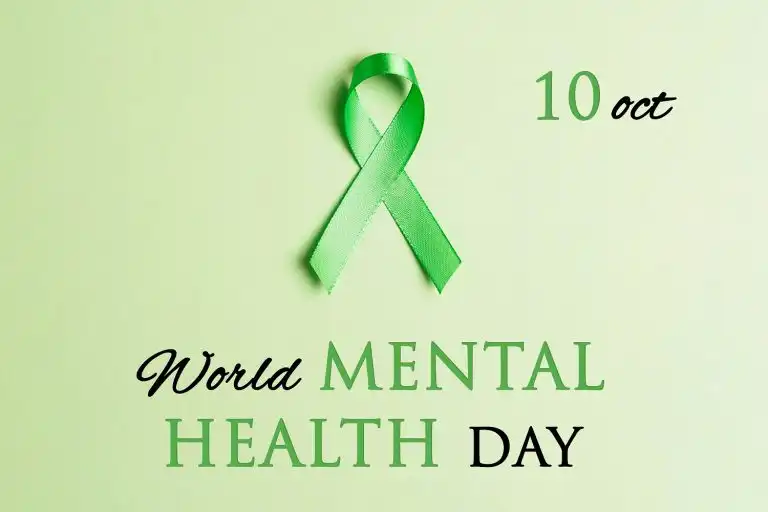
World Mental Health Day 2024, on October 10th, is an opportunity for the world and communities to unite behind the theme ‘Mental health is a universal human right” It is not just a day of awareness; it’s a collective step towards a healthier, more understanding world. International Mental Health Day increases awareness about mental health issues. So, here are the positive and adverse on our minds explained by psychiatrist Sonal Anand from Wockhardt Hospital. Mental Health Day: Ensuring Universal Mental Health Rights Intrinsic Right: Mental health is a universal human right to well-being, intrinsic to our identity, and an essential component of human rights. Respect and Dignity: Every individual deserves to be treated with dignity and respect, irrespective of their mental health problem. Empowering Minds: Ensuring Universal Mental Health Rights Adequate mental health care services, including prevention, promotion, treatment, and rehabilitation, should be accessible to all without any form of discrimination. Social Inclusion: Mental health as a human right means promoting social inclusion, understanding, and acceptance for individuals with mental health conditions. Equal Opportunities: People with mental health concerns have the right & law to equal opportunities in education, employment, and participation in society. Discrimination in these areas should be eradicated. Empowerment: Empowering individuals to make decisions about their mental health care, and respecting their choices, is a fundamental aspect of mental health as a human right. Global Recognition: Mental health as a universal human right is recognized by international organizationsemphasizing the importance of mental well-being on a global scale. Promoting Awareness: Raising awareness about mental health rights fosters understanding, reduces stigma, and encourages society to support, respect and help those struggling with mental health issues. Prevention and Support: Mental health as a human right involves investing in prevention strategies and offering appropriate support systems to ensure individuals can maintain good mental health and well-being. Collaborative Effort: Governments, communities, healthcare providers, and individuals all play a role in upholding mental health as a universal human right, working together to create a mentally healthy world for everyone. Understand Social Media’s Positive and Adverse Impact on Our Mind with Sonal Anand The influence of social media is such that there is rarely anyone who hasn’t been able to form a view and judgment of it whether positive or negative. Internet and social media usage have definitely changed brain cognition. On the positive side, we have seen better means of expression, positive changes in social acceptance, new skill development, and overall progress, and on the negative many perils and problems. Positive Impacts of Social Media Research is still going on as to how the brain is changing in structure and cognition due to the usage of screens. We know for sure that the brain is adaptable to continuous external stimuli and learning new experiences so it won’t come as a surprise that our mindset and behavior is influenced by social media and social networking usage. The number of ‘likes’ and positive comments that we get activate the reward centre of the brain and hence addiction becomes highly likely. Social Media For our Development Communication is the key area in which social media has exerted a very heavy and positive influence. With just a tap, you can join a community with similar and sometimes revolutionary views. This can be an advantage for introverts or people with lesser opportunities and marginalised individuals. Having a platform to express oneself without any boundaries can open whole new ways of thinking and creativity. Learning new skills and the variety of choices promotes self-worth and development. Social Media For Sharing Emotional Problems Social media makes it easy to find new friends, easy means of connectivity and new ways of social development. Sharing emotional problems online has helped many individuals who were otherwise cocooned into their own shells. A wave of change in some redundant and unfair social patterns has been seen because of the positive influence of social media. Taking part in such movements gives the individual a feeling of being an integral part of social change. Social media movements like ‘MeToo’, ‘BlackLivesMatter’ have been successful in reaching out to the masses and touching the right chords. Negative Sides of Social Media While the positive influences of social media on societal change cannot be doubted, the negative effects are what is bothering research scientists. The social media deprives a face-to-face interaction which is critical as non-verbal cues because body language has been an integral part of our evolution. Habit of Comparing The virtual image and real image become two parts of the individual and the resultant conflicts arising from the disbalance of the two is what mainly brings about negative changes. The impact of seeing ‘perfect lives and photographs’ of others and comparing them with oneself can become quite traumatising and difficult to express. One forgets that only one dimension is seen in these pictures and that reality could be different. People tend to post mostly the best versions of themselves and hence comparisons cannot be relied on. Severe Mental Health Issues Cognition is definitely affected by higher use of social media in the form of attention, memory and prioritisation problems. Sleep pattern could get dysregulated due to the blue light from screens leading to further problems. Cyberbullying, hate spread, negative comments, lies, misinformation, FOMO (fear of missing out) can hurt young minds and leave deep emotional scars. Growing minds are yet to hone their rationalisation and problem-solving skills. Such negative incidences lead to a variety of mental health problems like anxiety, panic, depression, insomnia, problems of self-esteem and hopelessness leading to self-harm behaviour and suicide. Addiction to social media is what most people and parents fear. Living in a virtual world and forgetting to live in the real world can take out the meaning of life as we know it. We cannot deny that social media is here to stay and so molding oneself to use its positive influences and striking the right balance can make life better. One must not be isolated by problems and social
Not The Ke-To Good Health?
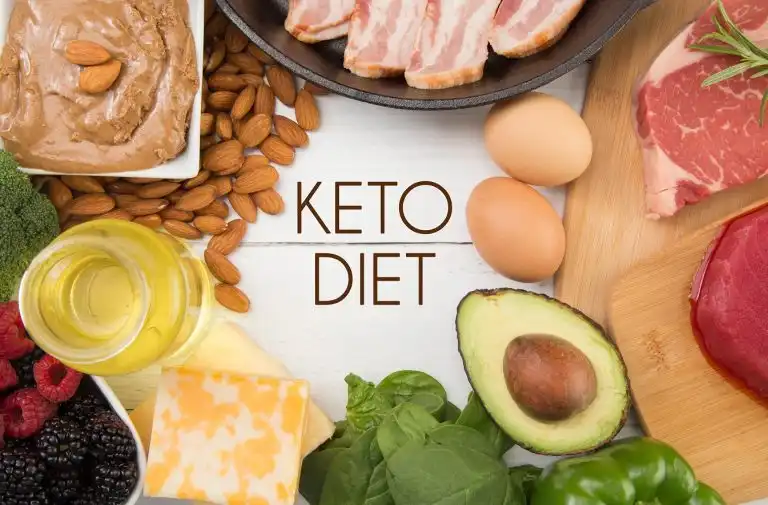
Last week, actor Mishti Mukherjee, who was in her mid-thirties, passed away in a Bengaluru-based hospital, owing to kidney failure. The actor, who had starred in several movies, was on a keto diet, which allegedly affected her kidney function. Although the keto diet is one of the most popular ones to have emerged in the past five years — with the likes of Kim Kardashian, Halle Berry and Gwyneth Paltrow, among other celebrities, trying it — Mukherjee’s sudden death highlights the need to understand the risk of following fad diets. What Is It?Dr Alifia S Bhol, clinical nutritionist, lifestyle therapist and founder of NutriAl online diet clinic, explains that the ketogenic or keto diet was originally developed as a measure to treat epilepsy patients in the 1920s. “It’s a low-carbohydrate, high-fat and controlled protein diet. It was not considered the best measure to treat epilepsy patients, but was used as other forms of medication weren’t working,” she shares, adding that following the diet leads to the formation of ketone bodies which help with seizures. Jinal Patel, senior executive dietitian at Apollo Spectra Hospital in Tardeo, says that the daily intake of carbs is reduced to less than 200 gm as per the diet, which leads to a metabolic state called ketosis. “Usually, the carbs act as fuel for the body. In the absence of adequate carbs, your body becomes efficient in burning its own fat as well as the fats you’re consuming for energy utilisation. Depending on your body metabolism rate, age and gender among other factors, you can end up losing four to five kg weight within 30 to 45 days,” she adds. Dr Bhol notes that the diet is one of the biggest weight loss trends in the past four to five years: “Because it consists of high-fat foods like butter and cheese, it’s very palatable. People love to hear that they can eat this kind of food to lose weight.” She tells us that typically, a 4:1 ratio is followed for fats and carbs. “In keto, for every 4 gm of fat, there is 1 gm of carbs. So, you have eggs, cheese, certain kinds of nuts, oils, high fat oil seeds, meat, high protein skimmed products, fish and seafood, and non-starchy, fibrous vegetables,” she elaborates. Effect On Health Dr Bhol points out that since keto diet is restrictive in nature, a lot of vegetables and fruits such as beans, carrots, sweet potato and bananas get left out of daily meals. “One is deprived of several nutrients and vitamins,” she says. Doctors also point out that the presence of hidden salts can affect kidney function. “Kidneys are your filtrates and regulate water, sodium and potassium balance in the body. The excessive presence of salt, harmful fats and increased protein, along with existing hypertension, can erode the walls of kidneys,” Patel tells us. Dr Chandan Chaudhari, nephrologist, Wockhardt Hospital, Mumbai Central, claims that taking on a keto diet to shed a few kilos without seeking clinical guidance can aggravate pre-existing kidney problems that one might not be aware of. “It can lead to high uric acid levels, inadequate hydration and acidification of urine, leading to kidney stones. Moreover, if you’re just looking it up on the Internet, chances are, you end up consuming excess of bad, saturated fats (for instance, fried meat), instead of polyunsaturated fats, which affects the lipid profile.” Dr Bhol asserts that although it has been beneficial for some diabetics, the diet can also spur off sluggish moods and constipation. All three experts observe that while the keto diet may be a quick way to knock off extra weight, it isn’t sustainable. “We don’t prescribe it unless you medically need it. There’s a big chance of a ‘yo-yo effect’, or gaining double the weight. If 2020 has taught us anything, it is that health is wealth. And one diet cannot apply to everyone. A diet has to be bespoke,” says Dr Bhol. Here are a few guidelines to bear in mind before you take on any kind of diet: Consult a dietician or nutritionist before you start. Get your urine sample, blood pressure, sodium-potassium levels and lipid profile checked. A health expert always seeks a body composition report to devise a meal plan; Googling for suitable diets can have dangerous repercussions as one size doesn’t fit all. Avoid keto diet if you have existing kidney issues, hypertension, and cardiac problems. A balanced, customized diet that includes a fair combination of all nutrients in controlled portions throughout the day is the way to go. You also have to work out daily to stay in shape and keep yourself healthy. Source: https://www.mid-day.com/articles/not-the-ke-to-good-health/23037228
5 ways to protect your family’s mental health amid COVID-19 crisis
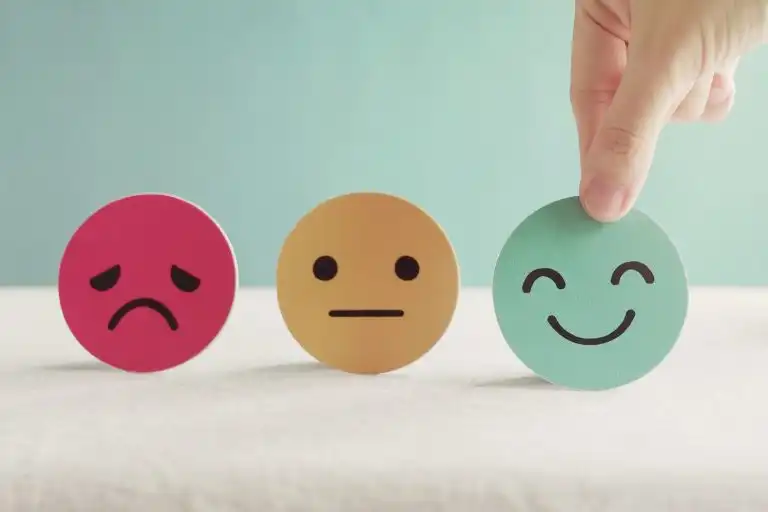
Looking after your own mental health is even more important now given the uncertainty surrounding the outbreak of the novel coronavirus. Perhaps, we’re still trying to adjust to the new realities of working from home, home-schooling of children, a lack of physical contact with our family members, colleagues and friends – all these changes to our routines can be challenging for all of us. Yet, for some people, especially those with mental health conditions, adapting to lifestyle changes brought on by the COVID-19 and managing the fear of being infected with the virus can be particularly difficult. While not all mental health conditions can’t be prevented, there are a lot of things that we can do to take care of our own mental health and help others who may need help and support. In fact, there are many ways in which families can support each other and make the most of this new normal. How to protect your family’s mental health amid COVID-19 Treatment for mental health disorders may vary from person-to-person depending on the underlying condition. Fortunately, there are a many step you can take to improve your emotional health on your own. Ahead of World Mental Health Day, Dr Sonal Anand, Psychiatrist, Wockhardt Hospital, Mira Road, Mumbai, suggests a few tips that will help you and your family re-balance and thrive amid the pandemic: Eat right and exercise daily: You must green leafy vegetables, berries, walnuts, fatty fish with omega-3 fatty acids, turmeric, broccoli, pumpkin seeds, nuts, oranges, eggs and have green tea that is good for the brain. Drink water and stay hydrated. Say ‘NO’ to smoking and alcohol. Stay physically active and exercise as that will enable you to release feel-good chemicals like dopamine, serotonin, oxytocin, and endorphins. Ta da, you will be able to stay happy and reduce stress. You may also opt for swimming, cycling, walking, jogging, aerobics, or any other activity that you like. To de-stress do yoga or meditation.Stay away from self-criticism: Uplift your spirits. Do not criticize your behavior. Just respect yourself, be kind, and patient. You can do what you like for example – painting, dancing, gardening, or cooking. Stick to a proper schedule and lead a healthy life. Also, do not let people treat you badly. You deserve love and respect.Be positive: Accept the situation and be optimistic about life. Try to battle the illness with the help of your family members. Surround yourself with people who care for me and can guide you. Open up about your feelings and communicate with people. Journaling can be a good idea to write down your thoughts or triggers and then overcome them. You can also volunteer and help others who are struggling with the same problems.Have simple conversations: Do not roast the person who is feeling sick. Instead, ask him/her about why they are feeling low. Let them open up to you confidently. Encourage the person to live a healthy life. Be understanding and listen to their worries and concerns. Help them overcome their fears and offer them emotional support.Don’t assume things: Avoid assuming things on your own. Do not make any diagnosis by yourself. See to it that you help your loved one to cope with the problems. Allow them to discuss at their own pace. Help them become courageous and this will, in turn, build their trust in you. Avoid pressuring the person as this will worsen his condition. Be kind and compassionate towards your loved one who is trying to cope. Additionally, look for warning signs – if you notice symptoms such as anger, frustration, behavioral changes, or injuries then the person will need immediate attention. Ask them about the things that are bothering them and take them for counseling. Take immediate action to ensure that the person is safe. Source: https://www.timesnownews.com/health/article/5-ways-to-protect-your-family-s-mental-health-amid-covid-19-crisis/664495
Walking Every Day Can Make You More Resilient to Stress
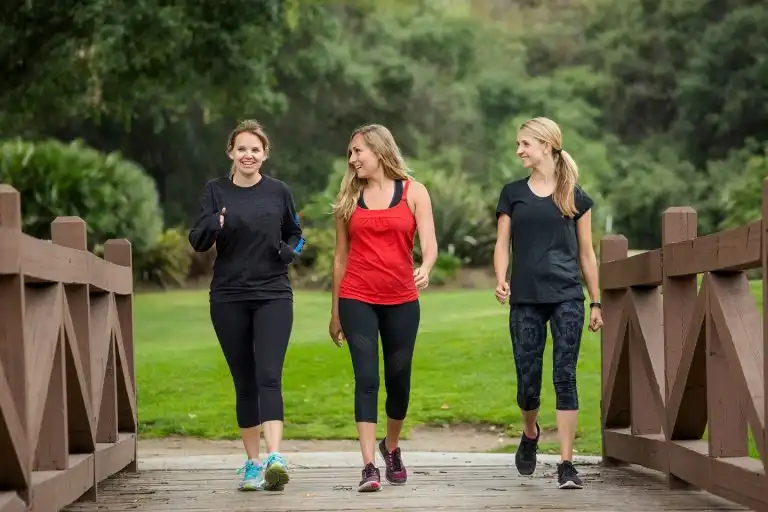
Are you stressed owing to your personal or professional life? Then, start walking every day! Did you know walking can help you set all your worries free? Walking has an insane number of benefits. Yes, you heard it right! Walking is good for your joint health, heart, and can can reduce stress and anxiety. Moreover, it soothes your nerves, enhances your mood, and keeps you active and positive for the rest of the day. Just wear your walking shoes and go for a walk in the nearby park/ ground. You will feel better and stress-free! Walking is an equipment-free activity and one of the best exercises for staying hale and hearty. In the morning, the air is fresh as the pollution levels are at their lowest. Along with other gases, fresh air has a good amount of oxygen. When you inhale oxygen, it is delivered to your cells, which utilise it to carry out all the functions. When your body functions properly, you will be able to keep various health ailments like heart disease at bay. Not only this, but walking also helps you battle the bulge, tones your body, and lead a stress-free life by reducing tensions, depression, and anxiety. It Can Help You To Relieve Depression Do you know that going for a stroll can help you to de-stress and relieve depression? When one walks, natural pain-killing endorphins flow properly throughout the body. It Can Be Calming For Your Brain Various studies suggest that walking in green spaces can allow your brain to a calm state with little or no signs of anxiety. This is so because walking gives you some me-time when you can just introspect what is happening around you. You will be able to rejuvenate and manage stress. Walking Outdoors Can Help You Stay Stress-Free If done outdoors, walking as added benefits as when you are out in the lap of nature you can be sure that your memory and attention span would improve and so would your ability to fight any stress. Not only this, but it will also help you to beat tiredness. You will feel active the whole day and will be able to improve your productivity. It Helps Reduce Stress Hormones Are you often worried about your job? Or is your financial condition bothersome for you? Stressed owing to inflation? Then, it is the need of the hour to take up some activity that will help you stay calm and composed. Here, walking can be beneficial for you as it can regulate your mood. Just like any other cardiovascular activity, walking tends to boost the production of stress-busting endorphins. This, in turn, helps reduce the stress hormones and alleviate depression. Ta-da, by opting for walking, you can improve your mood and even enhance your self-esteem.
Ovarian Cancer: Causes, Symptoms, Diagnosis & Treatment
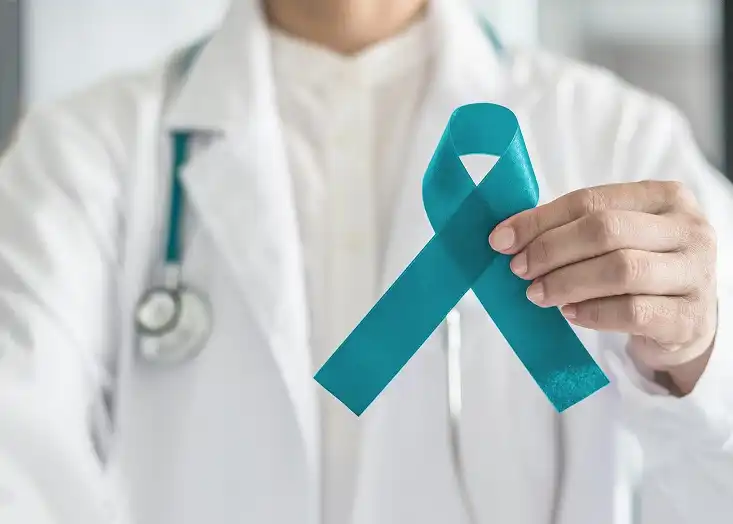
Are You Suffering From Ovarian Cancer? Here we brief you about the causes, symptoms, risk factors, early diagnosis, and treatment of it. Read on to know more about this, and tackle it at the right time. Women, do you often encounter pelvic or abdominal pain? Are you feeling bloated? Is there a loss of appetite? Then, you must instantly consult a doctor as these could be the symptoms of ovarian cancer. Ovarian tumours may be benign or malignant. Ovarian cancer can be termed as a malignant tumour, on or within a woman’s ovary. Are you aware? Dr Atul Narayankar, Consultant Medical Oncology, Wockhardt Hospital, Mira Road explains that it starts in the female reproductive organs that produce the eggs or ova (i.e. the ovaries), and can spread to the pelvic organs and later to other abdominal organs and lungs as well. Causes of Ovarian Cancer Women having family members who have had ovarian cancer, are at a greater risk of developing the condition. Do you know that BRCA 1 and BRCA 2 genes – if inherited, may invite this condition?Women in the peri-menopausal and postmenopausal age group of 40 to 70 years commonly suffer from ovarian Cancers. However, it may present in the younger age group, especially amongst patients with a genetic predisposition. Those women who reach puberty early or have no children had their first child late, and those who achieve late menopause have a greater chance of developing ovarian cancer than others.Exposure to specific environmental agents such as talc, pesticides, and herbicides may contribute too. Symptoms of Ovarian Cancer Did you know? Pelvic or abdominal pain, vaginal bleeding, pain after sex, bloating, urgent or frequent urination, and even loss of appetite or feeling full that to can be the symptom of ovarian cancer quickly. Moreover, you must see to it that if these symptoms persist or worsen, then it is the need of the hour that you visit your gynecologist for cancer screening. Get diagnosed with the underlying disease and seek appropriate treatment. Diagnosis of Ovarian Cancer There is no standard screening technique to detect this type of cancer treatment in India. TVUS is the test that tends to use sound waves to look at the uterus, fallopian tubes, and ovaries by putting an ultrasound probe into the vagina. Even a pelvic examination coupled with an ultrasound examination, a blood test for cancer-related markers, and a biopsy, usually done by a gynecologic oncologist, can be helpful. Treatment of Ovarian Cancer Likewise, the treatment will also depend on the size and location of the tumour. During the first stage, surgery is the mainstay of the treatment. In the second and third stage, the addition of chemotherapy to surgery will be recommended reducing the chances of disease relapse.In the advanced fourth stage, one can be given palliative care with chemotherapy in addition to newer targeted therapies to control and manage the disease.Different types of targeted therapies work distinctively, but can change the way cancer cell grows, divides, or tends to interact with other cells. Speak to your doctor about prompt treatment for you, and get going. Source: https://www.onlymyhealth.com/ovarian-cancer-causes-symptoms-diagnosis-treatment-1601706138
6 Dinner And Post-Dinner Habits You Need To Stop To Maintain Good Health

Do you hit the sack immediately after your dinner? Failing to follow your proper dinner timings? Are you into midnight snacking? Then, you are doing it all wrong! The formula to stay fit and fine is to swear by a proper schedule and enhance the quality of life. Here, we list out a few dos and don’ts, keep reading! Delaying Dinner One of the most important things you need to follow is that you need to eat dinner on time. Studies suggest that people who delay their dinner are more likely to gain weight due to post-dinner cravings and bingeing. Thus, early dinner helps you maintain a healthy weight. Having late dinner and sleeping immediately also leads to weight loss. What You Eat For Dinner Matters It is important to eat a healthy meal for dinner rather than having fancy or junk food (It is observed that most of the people have fancy meals like pav bhaji, franky, sev puri, pani puri, sandwich, pizza, etc for dinner.) These dishes do not have the right nutrients which lead to nutrient deficiencies, which leads to post-dinner cravings. The meal should comprise a good combination of protein, fats, and fibre. This keeps an individual satiated and prevents post-dinner cravings. One’s metabolism is usually lower in the evening as compared to the day time. Hence, a low carbs, high proteins, high fiber, and moderate fats are recommended to maintain weight. This also helps in good bowel movement and maintains overall health. Lying Down Or Sleeping Immediately After Dinner This can cause weight gain and also acid reflux in many people. (One of the major reasons for acidity, bloating, and reflux disease.) This is observed in a lot of people these days. Hence, early dinner is recommended (at least two hours before you sleep/lie down). Some activity is recommended post-dinner (like strolling/walking for 15 minutes). Not Drinking Enough Water Drink enough water throughout the day. Two to three litres of water are recommended throughout the day. Avoid drinking carbonated beverages or sugary drinks with dinner which will add up to the daily calories and lead to weight gain. Post-Dinner Snacking Not eating healthy dinner and nutrient deficiency leads to post-dinner snacking/craving. Snacking on the wrong food causes weight gain. One should have healthy snacks in such cases. Healthy options like salads, fresh fruits, hummus with homemade crackers, nuts, and seeds are good options. Do not store unhealthy/junk food like chips, chocolates, frozen food, or packaged food at home to avoid consumption. Eat Healthy Food Throughout The Day Eating fewer calories in day time leads to cravings and binge eating. Hence, it is advised to eat a healthy and balanced meal throughout the day helps to prevent post-dinner cravings. Do not starve through the day. Instead of starving yourself, have a small, healthy meal/snack. Have a cup of green tea/green coffee, a fruit or a small bowl of fruit salad, or coconut water or soup or buttermilk. This will prevent you from feeling extremely hungry at night. Eat Dinner Without Distraction It is advised to have dinner in a peaceful environment, without any distractions, no phone, and television. Eating peacefully and with the family will help you enjoy your meal and avoid any kind of snacking later. Sleep On Time Sleep deprivation leads to weight gain. When you sleep, your body recharges and rejuvenates the muscles, bones, and brain. Going to bed within 2-3 hours of having your dinner will prevent you from binging on junk food. Studies have shown that not getting enough sleep can lead to weight gain or decrease the weight loss process, if one is on a diet. This also leads to nutrient deficiencies as the absorption is affected. They say ‘health is wealth,’ true that! Staying fit and fine will require effort. You will have to exercise, eat the right kind of food, and follow a proper sleep schedule. This will help you add years to your life. Hence, it is the need of the hour to embrace a healthy lifestyle and stay in top shape. Know what you must do to stay healthy.
TB Or Not TB
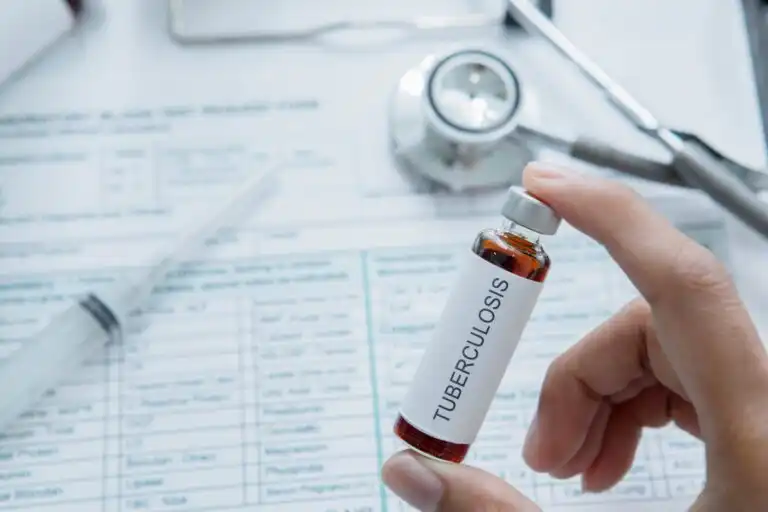
What is the Differential Diagnosis? ” I questioned my team, raising my arm with an MRI film in hand, holding it up against the morning light that brightened up the patient’s room. A differential diagnosis (or DD, as we like to abbreviate it) is where we list out multiple possibilities by weighing the probability of one disease over another, based on the clinical and radiological features of the patient’s symptoms, to work towards an actual final diagnosis. It is a process of clinical reasoning that we exercise to enable appropriate testing, helping us arrive at an answer. Mrs Gandhi was a 55-year-old lady whose right eye appeared more prominent than the other. She felt pain while moving her right eyeball, and the tiny streaks of red we saw over the white of her eye looked angry and congested. The lower eyelid was swollen and appeared like a prosthetically positioned dark circle. An evening fever had been brewing in the background, but she had brushed it aside. She was capriciously told she had a tumour in the orbit and was sent to us. The resident doctor peered at the scan, hoping I would shift focus to someone else or that my arm would tire waiting for an answer. When the diagnosis is uncertain, junior doctors don’t like to speak up for fear of saying the outrageous. “At Least Describe What you See,” I Said, Trying to Instil Some Confidence. “There is a fleshy-looking soft tissue lesion around the right orbit pushing onto the eyeball. It seems to have eroded the lateral wall of the orbit and a bit of the base of the skull, infiltrating the temporalis muscle as well,” he muttered, albeit correctly. “So, What Could it Be?” Once again, a couple of blank looks were exchanged, all in the presence of the patient who was nauseous with anticipation, eager to know what was going on inside her.“Looks like a tumor to me,” he concluded sanguinely. Another doctor suggested that it could be a deposit from a lymphoma. The others ricocheted that it could be something inflammatory. “Anyone for infection bacterial, fungal, tuberculosis?” I asked. They all nodded some meekly, others mindfully. Tuberculosis or TB should always be considered in atypical-looking lesions of the brain; the correct diagnosis comes from recognizing patterns and keeping an encyclopaedia of possibilities open. Most people associate TB as being a problem of the lungs, but TB can affect any organ that has a blood supply: the brain, spine, skin, muscle, bone, intestine, liver, kidney, spleen and even the heart; everything except the nails, hair and teeth. Given the endemic nature of this disease in our country, it always makes the list of differentials. There was a time when TB or one of its manifestations or complications could pass off as an answer to any question asked in an exam. Data suggests that nearly 3,000 people die of TB daily in India, because the bacterium is becoming resistant to the first line of drugs available to treat it. There was also a time when many of the uncertain or unexplained lesions in the brain and spine were empirically treated with anti-tuberculosis drugs and a vast majority would heal; that’s how we differentiated many ghoulish cancers from a certainly curable diagnosis of TB. But in today’s practice of medicine, almost every suspicion of the diagnosis of TB needs a biopsy to prove the same and document drug sensitivity. I explained to Mrs Gandhi the possibilities of this being a tumour or infection, mostly TB. We would have to do an intraoperative histopathological analysis or a “frozen section” of the tissue to decide on a further course of action. If the pathology of the mass during surgery suggested the presence of a tumour, we would attempt to remove it extensively. If it suggested TB, we would remove only enough to relieve the pressure on the eye without risking damage to neurological function, as post-operative anti-TB medication taken for a year would wipe out the residue effectually. The next day, we did a craniotomy and removed most of the tissue as we waited for an answer from the pathologist, who was scrutinising the cells under a microscope in a lab nearby. Sometimes, even pathologists may have a portentous time differentiating one condition from the other, depending on the tissue they receive. I once remember operating on a brain tumour in a HIV-positive patient. The scan looked like a lymphoma, a tumour that melts with a single dose of steroids and then some chemotherapy. We had decided, owing to the precarious location of the tumour deep inside the brain, that if the frozen section showed a lymphoma, we would not remove it completely, but that if it were any other tumour, we would go after it. The pathologist decreed it to be a lymphoma and so we stopped. The next day, despite high doses of steroids, the patient had malignant brain swelling and died. A few days later, while carrying out assiduous testing, the pathologist entertained the possibility that the cells showed a high-grade brain cancer also known as glioblastoma. He was apoplectic that some of those cells had mimicked a lymphoma. Iwas devastated. While we waited for the report to come in on Mrs Gandhi, we casually bet a coffee as we removed more abnormal tissue from her head. “This looks like tumour to me,” I said, giving my final remarks. My assistant disagreed. “It’s TB,” he announced, and he was right. We finished the job and a few days later gave her the positive news that her TB was sensitive to the first line of drugs. She was back to work in a week, the scar perfectly covered behind her hairline; no one in the office could tell she had just had brain surgery. A year later, she was cured, a scan showing no trace of the lesions. Medicine focuses on discerning the original and discarding the mimic. The word “diagnosis” arises from the Greek “to
1.5-kg lung tumour removed from Mumbai teen at Mira Road hospital
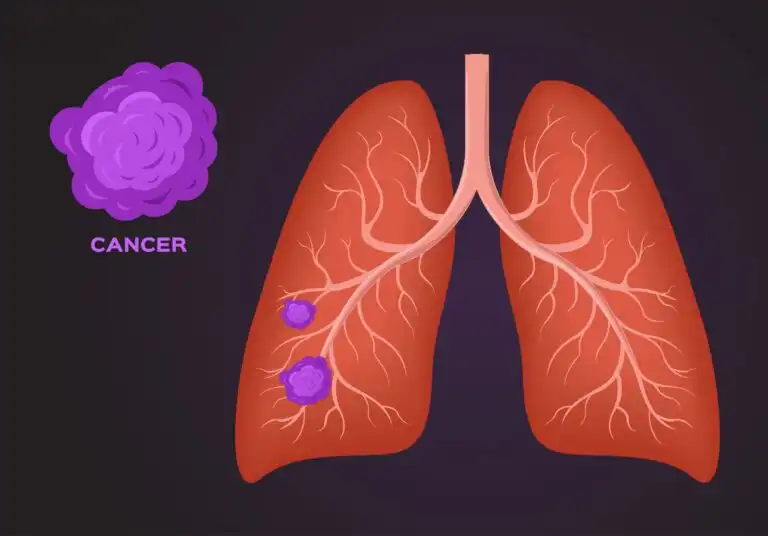
A 1.5-kg rare tumour was removed from the right lung of a 15-year-old boy from Byculla, Mumbai. The boy had complained of breathlessness and cough, following which the family physician thought that it could be Covid-19 and asked for few tests. However, chest CT scan confirmed a large tumour of 16cm x 14cm x 12cm size in his right lung. The patient was then admitted to Wockhardt Hospitals in Mira Road for tumour removal surgery. Dr Upendra Bhalerao, cardiovascular and thoracic surgeon at Wockhardt Hospitals, said the cystic tumour was growing with age and became as big as a football, thus compressing his right bronchus, trachea and adjoining chambers of heart, which in turn led to breathing problems and cough. He added that the tumour was completely removed by thoracotomy without removing any part of his lung. It was found that it was a very rare benign tumour. The patient’s father said, “My son was facing breathlessness and cough, but we were not able to understand the reason behind it. Due to the Covid-19 pandemic, we were delaying a visit to the hospital. But we were shocked when we learnt about the massive size of the tumour. Now my son has been given a new lease of life. He will soon be discharged from the hospital and lead a normal life.” Source: https://www.hindustantimes.com/cities/1-5-kg-lung-tumour-removed-from-mumbai-teen-at-mira-road-hospital/story-GhKYP1r4dnjprXkyk3Y3xL.html














